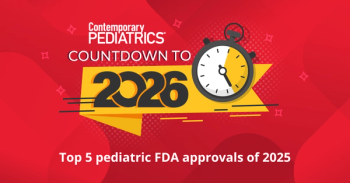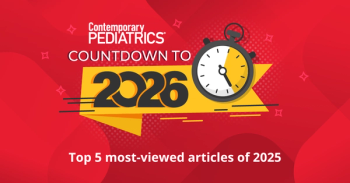
Acid-suppressing drugs overprescribed in infants
Proton pump inhibitors often are prescribed to treat infants with symptoms suspected as gastroesophageal reflux disease, but these acid-suppressing drugs are not safe for infants younger than 12 months.
Proton pump inhibitors (PPIs) often are prescribed to treat infants with symptoms suspected as gastroesophageal reflux disease (GERD), but these acid-suppressing drugs are not safe for infants younger than 12 months.
Eric Hassall, MD, gastroenterologist and advisor to the US Food and Drug Administration (FDA), says that the use of PPIs in infants has "rocketed." A large study of US health care databases showed a 16-fold increase in prescribing 1 child-friendly liquid PPI from 1999 to 2004. Almost half the infants in the study database started taking a PPI before age 4 months.
The practice is not based on medical science, suggests Hassall, but on factors such as direct-to-consumer marketing of "acid reflux" drugs to adults with gastroesophageal disorders. Over time, the perceived benefit of acid-suppressing drugs has "trickled down" to children.
FDA has not approved PPIs for children younger than1 year. A large, randomized controlled study of infants with symptoms suggestive of GERD showed that a PPI was no better than placebo in relieving distress. In addition, PPIs are not benign medications, Hassall warns. Acid suppression can lead to acute gastroenteritis and community-acquired pneumonia in children as young as 4 months, necrotizing enterocolitis in preterm infants, and candidemia in neonatal intensive care units.
Accurate history taking is key to identifying both the causes of irritability and the nonpharmacologic measures to alleviate distress. However, for a child with likely or proven GERD who fails to respond to other interventions, the benefits of PPIs outweigh the risks.
Hassall E. Over-prescription of acid-suppressing medications in infants: how it came about, why it's wrong, and what to do about it. J Pediatr. 2011. Epub ahead of print.
Newsletter
Access practical, evidence-based guidance to support better care for our youngest patients. Join our email list for the latest clinical updates.








